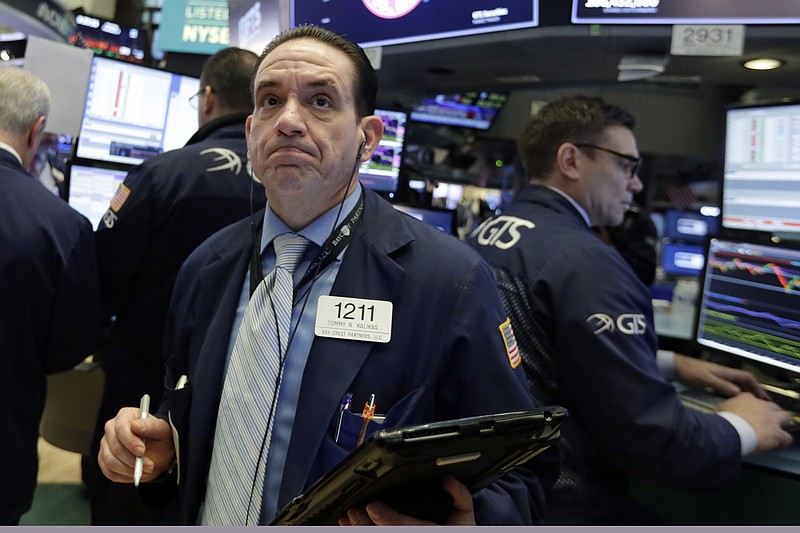NEW YORK (AP) - The Dow Jones industrial average plunged more than 1,100 points Monday as stocks took their worst loss in six and a half years. Two days of steep losses have erased the market's gains from the start of this year and ended a period of record-setting calm for stocks.
Banks fared the worst as bond yields and interest rates nosedived. Health care, technology and industrial companies all took outsize losses and energy companies sank with oil prices.
At its lowest ebb, the Dow was down 1,597 points from Friday's close. That came during a 15-minute stretch where the 30-stock index lost 700 points and then gained them back.
Market pros have been predicting a pullback for some time, noting declines of 10 percent or more are common during bull markets. There hasn't been one in two years, and by many measures stocks had been looking expensive.
The Dow finished down 1,175.21 points, or 4.6 percent, at 24,345.75.
The Standard & Poor's 500 index, the benchmark most professional investors and many index funds use, skidded 113.19 points, or 4.1 percent, to 2,648.94. That was its biggest loss since August 2011, when stocks were reeling as investors were fearful about European government debt and the U.S. had its credit downgraded after the debt ceiling impasse.
The Nasdaq composite fell 273.42 points, or 3.8 percent, to 6,967.53. The Russell 2000 index of smaller-company stocks sank 56.18 points, or 3.6 percent, for 1,491.09.
The slump began Friday as investors worried creeping signs of higher inflation and interest rates could derail the U.S. economy along with the market's record-setting rally. Energy companies, banks and industrial firms are taking some of the worst losses.
The S&P 500 has fallen 7.8 percent since Jan. 26, when it set its latest record high. Investors are worried about evidence of rising inflation in the U.S. Increased inflation might push the Federal Reserve to raise interest rates more quickly, which could slow down economic growth by making it make it more expensive for people and businesses to borrow money.
And bond yields haven't been this high in years. That's making bonds more appealing to investors compared with stocks.
The stock market has been unusually calm for more than a year. The combination of economic growth in the U.S. and other major economies, low interest rates, and support from central banks meant stocks could keep rising steadily without a lot of bumps along the way. Experts have been warning that wouldn't last forever.

